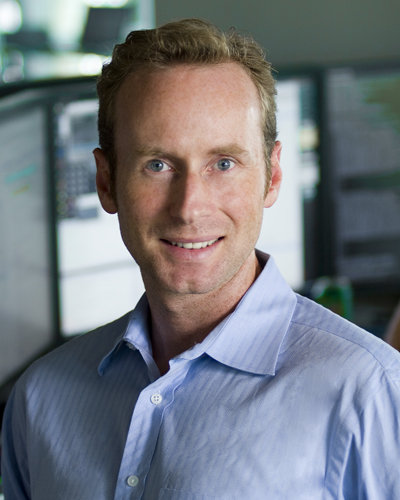|
|
Hedging Correlated Markets
Tyler Wood, who put together the sample portfolio in the previous section, talks
about current opportunities and portfolio construction in an environment of
heightened uncertainty.
Mr. Wood is an introducing broker and the founder of both Integrated Energy
Group and Integrated Capital Solutions in Naples, Florida. Previously he was
chief executive of Tuono Corp. and the Tuono Alpha Energy Fund. Integrated
Capital Solutions offers managed accounts with commodity trading advisors.

"It used to be that people did simulations of how a portfolio would
perform under conditions like the 1998 Long-Term Capital Management meltdown or
the 9/11 shock, but now the question is how it would have performed in 2008-2009."
Opalesque Futures Intelligence: How come you started a managed account
business after working in energy?
Tyler Wood: In the past couple of years my partners and I did investment
banking & marketing in energy, primarily oil and gas. Energy is a great place to
be long-term but our investors want more liquidity and transparency. Managed
accounts meet those needs, so we took that direction.
OFI: Why did you specialize in CTAs?
TW: CTAs are a true diversifier. In the slow growth environment we're in,
relative stock market performance is not promising, while fixed income offers
very little yield. So the only way to generate returns is through active risk
management and absolute performance. Investors will go for alternatives as a
necessity. Real estate has been the alternative widely used to diversify stock
and bond portfolios but managed futures will be an important component going
forward. There is no other alternative if you want to really diversify.
OFI: Does portfolio diversification matter more now than in the past?
TW: More markets are correlated now than in the past. If anyone thinks
stocks and bonds are not correlated, they're fooling themselves. Correlations
change over time and in a crisis most investments become correlated. I don't
know the future direction of any market but I know that unforeseen events will
affect markets. In the last 10 years we've had these supposedly
once-in-a-lifetime events happen every couple of years. I feel like I've aged 30
years in these past 10 years!
OFI: What do investors want?
TW: We talk with many registered investment advisers who are interested
in managed futures because their clients are searching for yield. The CTA space
offers opportunity to make money. Investors need it in their portfolios for both
yield and diversification.
OFI: Are there interesting new CTAs coming up?
TW: We have tremendous talent here that we want to develop. One of the
many CTAs we work with does options on currencies. He used to work for the Royal
Bank of Canada and is an engineer and doctor by training. His partner is a
retired NASA rocket scientist. They have a very disciplined approach to trading
and did a phenomenal job this year, but they're just starting as a CTA.
OFI: Has recent experience changed investors' views?
TW: It used to be that people did simulations of how a portfolio would
perform under conditions like the 1998 Long-Term Capital Management meltdown or
the 9/11 shock, but now the question is how it would have performed in
2008-2009. In our system you can customize the search and put together a custom
portfolio that meets your requirements. You specify, say, that you don't want
anyone with 10% or more drawdown in the past five years. All the CTAs in our
database are already vetted. Or we can suggest a blend that meets the investor's
specifications.
OFI: How many CTAs does it take to diversify a portfolio?
TW: It is a matter of strategizing where you want to be, what kind of
income you need and how to achieve that efficiently. You can diversify by
allocating to three to five really good CTAs, but people can start with one CTA
and add others as they get more comfortable with managed futures. In general, an
investor should not allocate a big part of their portfolio to a single CTA, no
matter how good that manager is.
OFI: What strategies look promising?
TW: It is important to have a blend of CTAs because there will be
opportunities in every segment of the managed futures industry. There's no way
to predict what's coming in the long term, so you need to take advantage of a
short-term time horizon to generate profits, such as shorter-term trends,
whether rising or falling.
OFI: Is there any specific strategy that stands out?
TW: Personally I like options trading. Options spread traders are hedged
and the passage of time, which works in their favor, is a sure thing. We don't
know the direction of markets, but we certainly know that time will pass!
|